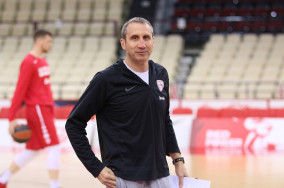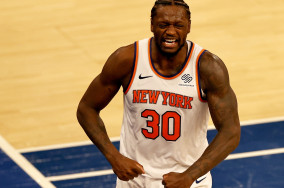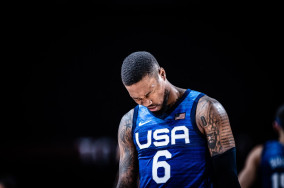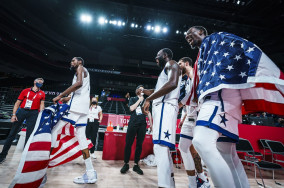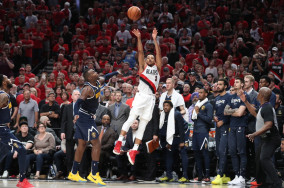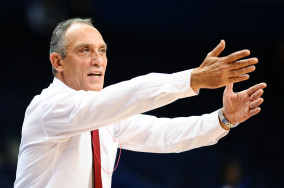Charles Daniel Smith is one of the few American players to have played with Team USA in two international competitions: the 1986 FIBA World Championship and the 1988 Olympic Games. The U.S. won gold and bronze, respectively, but their defeat to the Soviet Union in the Seoul Olympic semi-final was the prelude to the advent of the Dream Team, which changed the basketball world forever in 1992.
Selected with the 3rd overall pick in the 1988 NBA draft by the Philadelphia 76ers, Smith was quickly traded to the Los Angeles Clippers, playing with them through 1992. As a rookie, he was named to the NBA All-Rookie team. He then played with the New York Knicks from 1992-96, reaching the NBA Finals in 1994 and losing the title to the Houston Rockets. Smith then spent a year in the CBA (Continental Basketball Association) with the Florida Beachdogs.
He returned to the NBA in 1996-97 for the San Antonio Spurs. That was when Gregg Popovich replaced Bob Hill, and a whole new era began for the Spurs. The same can be said about Charles Smith. His pro basketball days were coming to an end because of a problem with his knees. Today such ailments could be fixed quite easily, but back then, they could become career-ending issues. Charles Smith was only 32 years old.
After his playing career, Smith earned a masters’ degree in management from Seton Hall University. He also set up the Charles D. Smith Foundation and Educational Center in his hometown Bridgeport, Connecticut, an after-school center for inner-city children. From 2008 through 2010, he served as the executive director of the National Basketball Retired Players Association. The now 56-year-old launched a company dedicated to helping athletes and entertainers transition from sports to the business world whilst traveling the globe to organize and promote basketball games with retired NBA players.
Currently residing in New York, Charles Smith responded to BasketNews after a request for a comment on the Tokyo basketball tournament. He also recounted his memories from playing with Team USA, weighed in on the different types of leadership, and referred to his two biggest regrets.
What's your take on the Olympic tournament? Was there somebody or something that surprised you? - BasketNews asked Charles Smith.
Each year, the competition appears to uplevel among certain countries. When Nigeria beat the U.S. in an exhibition game, I thought it would be big for any team, but I knew the U.S. weren't rattled.
Obviously, France going to the gold-medal game showed the parity, and the Americans going to the Olympics with the best team they could put together. It's needed now. I enjoyed watching the Olympics. Some of the other teams got a lot of confidence.
We saw a couple of NBA players carrying their teams, like Luka Doncic. He played phenomenally and continued to show his world prominence, as far as ability. The first time France beat the U.S. I thought it was a big loss for them and a big win for France. But the U.S. have a lot of champions on their team. So, I expected them to win, and it was a very challenging game; kind of a war of the wills, small-ball against big-ball at times.
Any team could have won, but Kevin Durant proved why he's the best player in the world. He scored when he needed to and did the right thing for his teammates. Other guys, like Lillard, also stepped up and contributed. So, it turned out to be a big game.
Who would you vote the tournament's MVP? Kevin Durant, Luka Doncic, or someone else?
Some people look at it in different ways. Obviously, some say Luka. But at the same time, when you look at the purpose of the Olympics, it's to win the title. When you have a player on that championship team who has proven to be the MVP of this team game in and game out during each tournament, that's Kevin Durant. There's no doubt that if there was an Olympics MVP, it would be him. He showed up at every game, and in the final, he did what he had to do.
Do you think that Team USA were rightfully or justifiably low (even in 4th place) in the pre-Olympics power rankings?
Power rankings are what they are. Personally, I don't believe in it because there is no stats line for heart, desire, and will to win. Some other teams, like the Japanese women, would probably be my No. 1 in the power rankings for their heart and desire. At the end of the day, those rankings don't mean anything. What matters is who wins the championship.
You were a part of two US teams that didn't feature any active NBA players but were full of future NBAers (Muggsy Bogues, Rony Seikaly, Steve Kerr, Kenny Smith, Sean Elliott), and even Hall-of-Famers, like Mitch Richmond and David Robinson. In 1986, you beat the Soviet Union to win gold at the FIBA World Championship and two years later, at the Seoul Olympics, tables were reversed. What's your most vivid memory from those tournaments?
In Spain, we were the last college team to win the World Games. I led our team in scoring. Two years later, we were the last college team to compete at the Olympics. Over the years, the world has gotten better at basketball. During the 80s and 90s, a lot of NBA coaches started traveling around the world. Detlef Schrempf was discovered out of Germany and I remember John Thompson talking about how all those coaches trained players to a certain level where college players were not good enough anymore to play against the pros from around the world. Their ability was becoming comparable, but their size and experience we couldn't match because we were just coming out of college and had to play against 30-year-old men.
During the World Games, we weren't expected to win. We were young, didn't have a lot of size and quickness. By the time the Olympics came around, we were pretty much the same team. But overall, they were ready for us. We had a couple of injuries, like Hersey Hawkins. The U.S. cried for NBA players.
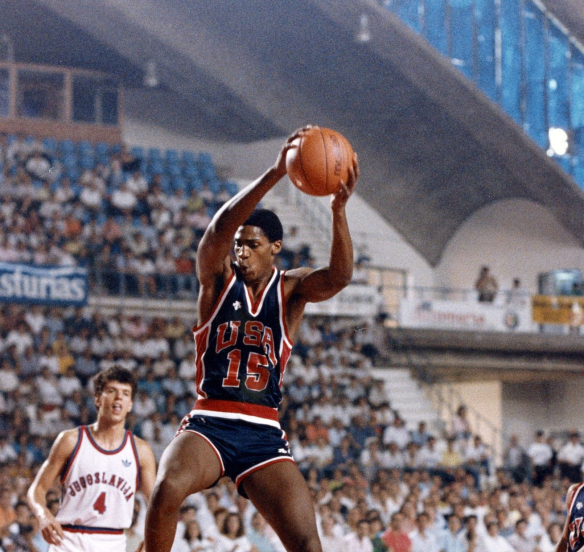
Do you believe that the arrival/emergence of the Dream Team in Barcelona was pivotal for the growth of basketball internationally?
Absolutely. That turned international basketball around because it was the most famous team of all time. With the type of players they are and how charismatic they were. It was the hottest ticket in the Olympics and they delivered on the expectations that people had, from the exhibition games.
Over 10 years in the NBA, you played every position on the team except point guard. You've called it "a gift because I was agile enough to do all these things and also a curse because I could never master one thing". What do you think about positionless basketball in the modern age?
The 1988 NBA draft was the one that started changing NBA basketball. We had three players who were 6'10'', could shoot from the perimeter, handle the ball. I was one of them, the others being Danny Manning and Derrick McKey.
The problem was that the game and the style of a player at the time were not accepted by most teams. The game was ten times more physical, so we all were called small. Most of the coaches didn't like that style, which was best utilized on the West Coast. There, everybody ran up and down and it wasn't half-court basketball.
When I got to New York, Pat Riley got the ball out of my hands and moved me from being a dribbling, passing power forward to a post-up small forward. That changed my entire game and how I played. Danny was having the same problems with the Clippers, but he was smart enough to stay on the West Coast, where it suited his style. Derrick McKey came to Indiana and it didn't suit his style. Coaches wanted us to get in the paint, fight and dunk. The Kevin Durants of today, who dribble and shoot, show what we could do, but weren't allowed to.
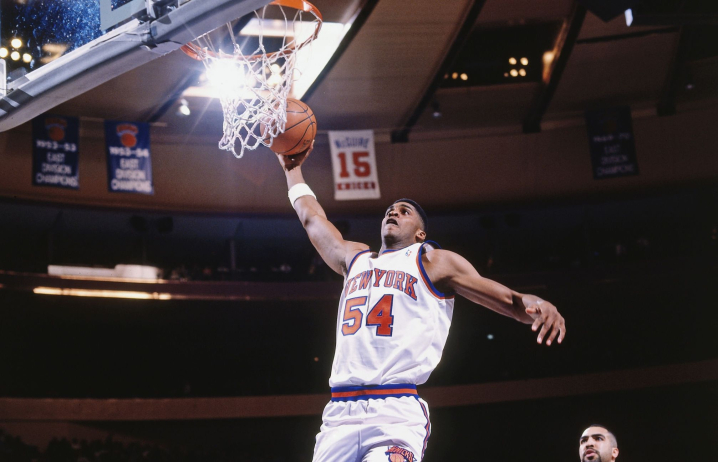
Your area of expertise involves communicating with employees to help them develop skill sets that will make them more versatile and valuable as teammates. What's the difference between a good teammate in basketball and a good teammate in the business world?
One of the differences is leadership. It's unfortunate, but in basketball, whether a player has leadership abilities or not if he makes the most money, he's usually the captain. That can hurt the team if the captain doesn't understand how to communicate with other players and the coach.
If you think of Michael Jordan, his talent was superior. But what most people don't realize is that he commanded communication and conversation with the management, the coaches, and the players. When a team doesn't go far or doesn't win a championship and you look at the leader on that team, you can tell a lot. Some coaches are dictators, others have a participating style of leadership.
What's the biggest sacrifice you had to make while playing basketball? Did it pay off?
It was going to New York, changing my style of play, losing weight, having fewer opportunities to score, and being the 3rd or 4th option on offense. That was a huge challenge for me. I look back at it and I can say that I did it because my abilities granted me the option to do it.
Overall, it didn't impact my legacy, the style of player that I was from the beginning down to the end. I did it to win a championship. We went to the finals, lost Game 7. I learned a lot of lessons, got a lot of experiences, without which I wouldn't be doing many of the things I'm doing today. So, it just didn't pay off the way I wanted it to.
Towards the end of your career, did you receive offers to play overseas?
I did - and I regret not taking it. I had an offer of $1 million to play in Greece. The team was AEK Athens and Rolando Blackman, my teammate with the Knicks, had played there (editor's note: in 1994-95). The guy that got Rolando on the team called me. It was a few summers before I retired, around 1998-1999.
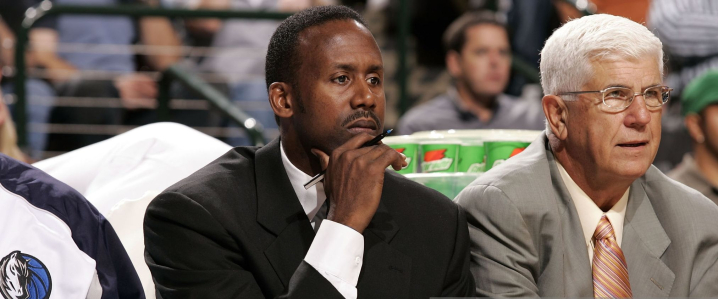
My wife wanted me to settle in and I regret it because I never played overseas. Two things I regret not doing is giving myself an opportunity to play overseas and being a bench player in the NBA for 4-5 years. I came in as a starter.
There were a couple of teams that showed interest some years later, but I had already started working and the word got out that I was retired. My right knee bothered me, but I didn't realize that all I had to do was not play for a year and let it fully heal. No one told me that. It was no fun playing injured.
Like what we are doing? Support us by becoming BN+ member.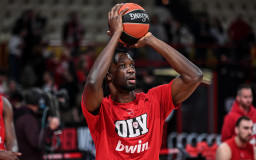

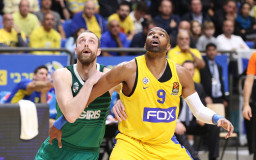
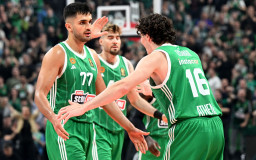















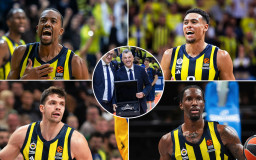
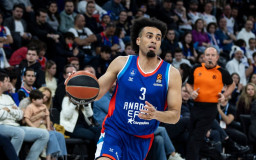
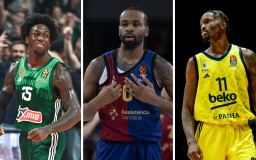































 USA
USA Spain
Spain Australia
Australia France
France
